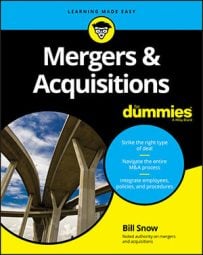Advisors are very important to the M&A process, and while most advisors do a fine job, you may run into one who isn’t doing his best.
As an example, a few years ago an investment banker was representing a Seller during a particularly difficult due diligence process. One of the Buyer’s executives contacted the intermediary to berate him about a problem his plethora of expensive accountants had uncovered with the Seller’s financials.
According to the accountants, the earnings the Seller provided in their materials didn’t jive with what they uncovered during their very intensive and extensive exploratory exam of the Seller’s finances.
This executive from the Buyer was convinced the Seller was “hiding something” (those were his words). The intermediary asked to review the Buyer’s work, and after much delay, the other side finally e-mailed him its spreadsheet.
Sure enough, the accountants were showing a $500,000 hole in the Seller’s earnings. Their analysis clearly showed that the Seller overstated earnings by that amount. They were positioning themselves to renegotiate the deal and demand a lower price.
But the devil is in the details. The intermediary representing the Seller pored through their work, literally cell by cell, until he found the one blatant and obvious mistake: Someone incorrectly (and probably carelessly) transcribed the audited numbers. The raw data the accountants were using to calculate earnings was inputted incorrectly.
The mistake was a case of user error. When he popped in the correct numbers, guess what? The earnings as calculated by the Buyer’s accountants suddenly fell in line with how the Seller represented earnings.
The intermediary calmly reported this information to the executive and e-mailed his findings. They knew the issue was resolved because the other side dropped it and never mentioned it again.

